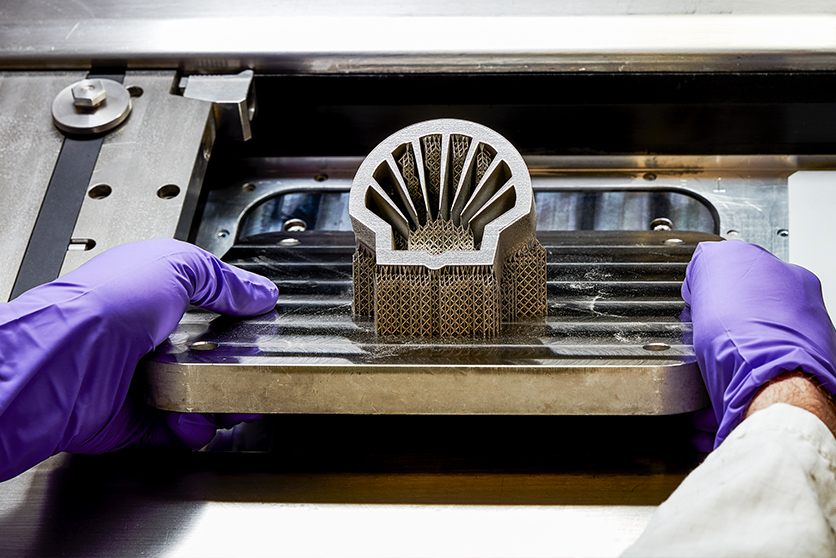Technology commercialisation
We invest in R&D to improve the quality of our products and efficiency of our projects, processes and operations – and to commercialise new technologies for the transition to a low-carbon future. In 2018, R&D spending was around $1 billion.
We manage a global technology-development network, with major centres in the USA, the Netherlands and India, and smaller satellite locations in China, Brazil, Oman, Qatar and Germany. Our in-house scientists and engineers at these locations are developing technologies that aim, for example, to turn natural gas into cleaner fuels and energy-saving lubricants; to bring crude oil up from under the sea more safely, economically and efficiently; and to reduce the Net Carbon Footprint of Shell’s energy products.
In recent years, much of this work has involved digital technology. Digital devices on Shell’s ocean-going ships and gas-processing plants, for example, are providing data that advanced analytical techniques can use to optimise performance. In the case of shipping, a team of data analysts discovered how ships can adjust their sailing approach to navigate most efficiently. By letting Shell's captains know exactly what the optimal sailing approach is for their particular vessels, fuel consumption and CO2 emissions could be reduced by as much as 10%. The digitalisation of the Pearl gas-to-liquids plant in Qatar enabled another team to optimise the settings of the plant in real time, as soon as the data are measured. As a result, the plant’s wax production is expected to increase by 1.1%, while its environmental performance also improves.
Our technology-development projects often involve collaborations with public or private entities, including business partners, universities, government laboratories, technology start-ups and incubators. In 2018, Shell embarked on 260 R&D projects with universities. Many of those projects help lay the foundations of low-carbon energy systems, such as those involving biomass, renewable power and electric batteries.
In 2018, we also announced a new accelerator programme that will help start-ups working on emerging clean-energy technologies to quicken their path to market. The Shell GameChanger Accelerator initially focuses on technologies related to long-term energy storage and power-grid management. The programme works with the US Department of Energy’s National Renewable Energy Laboratory and has so far identified four companies to support.
These collaborations are in addition to two established programmes through which entrepreneurs can share the rewards (and spread the risks) of commercialising technology:
- Shell GameChanger, which works with start-ups and businesses on unproven early-stage ideas with the potential to impact the future of energy; and
- Shell TechWorks, a programme that brings proven technologies from other industries into the oil and gas sector.

Shell Pecten created on 3D metal printer in Shell Technology Centre Amsterdam, the Netherlands
 Our businesses and organisation
Our businesses and organisation
 Overall highlights in 2018
Overall highlights in 2018
 Projects
Projects
 Financial data
Financial data